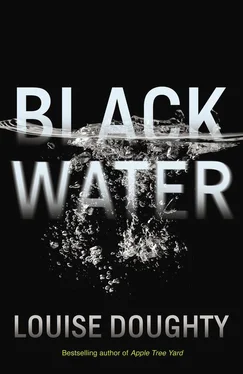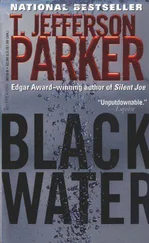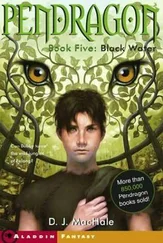The port was undergoing expansion; skeletons of new sheds were ranged in different stages of construction and beneath the mechanical chunter of boat engines and the shouts of men was the grind and spin of machinery at work: a cumulative noise that made the port seem like a living thing, a monster needing to be fed. A row of open trucks loaded with sandbags and coils of rope lined the edge of the concrete jetty to his left — parked perilously close to the water, he thought. As he watched, a man standing on top of the bags raised a hand in which there was the steel question mark of a hook. He jabbed the hook into one of the bags then pulled, slitting the bag open. Sand ran out in a torrent, down the side of the truck and into a wheelbarrow held by another man waiting below. Indonesia: always a work in progress — he had followed the recent history of the land of his birth enough to know that. But now what? Where was that progress heading now the great Bung Karno was drifting ever closer to Peking?
He had bought a packet of kreteks on board ship and he paused to light one now, ceremoniously — he had made himself wait until he was standing on Javanese soil. It wasn’t much to mark his return but it was small and private, which suited him just fine: the only other person who would appreciate the significance of this arrival was his mother and she didn’t know where he was, only that he had left Amsterdam ‘on another one of your stupid trips’, as she called them. Lately, she had taken to accusing him of not being abroad at all, just avoiding her. ‘When are you going to find a nice girl and settle down? What’s wrong with you? I’d been married twice by your age.’ That wasn’t strictly accurate but then Anika rarely was.
He flicked the match away, inhaled deeply on the cigarette, blew out, then flapped his hand at the young man who had darted forward from the crowd in the hope of picking up his tin trunk or one of the cases that sat on top of it. ‘ Tidak, tidak. . ’ he said, then added, ‘ Terima kasih, tak usah. . ’ He passed his tongue over his lips — the sweet taste of cloves; the kretek was a honeyed hint of delirium, temporary and addictive. The ground beneath his feet felt pliant after three weeks at sea.
He was being met by a driver — the local office had organised it. The ship had docked early but it would take some time for him to locate his crate once the ship had been emptied. The driver would be late. There was no hurry. Above him, to the right, some of the crates from the cargo hold were already swinging on ropes, the men waiting below, the foreman shouting.
The Institute’s operations were in their infancy here: there was no physical office, just two local staff who both operated from their homes and they were out of town in Central Java, assessing the situation there. There would be no briefing for a while and even afterwards, he would be running his own operation, more or less, under Johnson’s instruction. The local staff were there to help with his language skills and advise on customs and etiquette, they weren’t trained men. There would be a chance to orientate himself, walk around, get used to the humidity, practise his Indonesian in shops and restaurants in districts of the city away from the ones where he would be working — and to buy more kreteks . Gregor may have been over-optimistic about his language skills but soon he would be smoking just like a local.
His instructions were to go with the driver to an area north of Glodok. The driver would know where to go, which street to wait in. Afterwards, he would be taken to a guesthouse in the Menteng district — but first he had to hand over the crate to the Americans. As they drove, a light rain began to fall, misting row after row of low-rise buildings, the warehouses giving way to long strips of open-fronted shops. Harper glanced at the driver from time to time, a silent man with a small, triangular face. More than just a driver, he guessed. He tried a little of his Indonesian on him but the man spoke so quickly and briefly in reply that he couldn’t catch what he was saying.
The main roads were broad in Old Jakarta but behind them were multiple smaller roads and alleyways — although he’d been told to take a walk through the kampong if he wanted to understand the meaning of the word narrow. Most of Jakarta was kampong , Joosten had said, vast shanty towns of slums, divided and subdivided, with streets so small, so densely lined with open shacks that you walked through people’s living rooms as you strolled along. At the height of the dry monsoon, in August, a load of them would burn down. Then they sprang up again. And later, when the weather broke and the wet monsoon rolled in, they would be flooded. Fire and water: the alternate hazards of Jakarta.
They parked in a road behind Kota railway station. There, they waited in silence. Harper offered the driver a kretek and he took one with a terse nod. Eventually, another car pulled up behind and a white man around Harper’s age got out with two Indonesian men. Harper saw them emerge in the rear-view mirror and opened his door. By the time he had climbed out, the white man was standing there, extending a hand. ‘I’m Michael, welcome to Jakarta.’ He had an American accent and a short crowbar leaning at a diagonal out of his jacket pocket.
‘John.’ They shook hands.
Michael turned to where the other men were already lifting the crate out of the boot of Harper’s car. It was heavy — they both carried it, two-handed and shuffling, to the boot of the American’s car and placed it inside. Harper waited while the American went round to the rear of the car, gestured for the men to get back in, then bent his head into the boot. There was a crack and a splintering sound as he prised the crate open. He stayed bent into the boot for a few moments, counting, perhaps, moving straw aside? M1 Garands? The Heckler & Koch? Or it could be ammo, more likely with a small delivery — or something specialist, perhaps. After a moment, Michael straightened, lifted his hand to Harper in salute.
First job done. That was pretty easy. Harper got into the passenger seat of his car.
‘Guesthouse now, sir?’ asked his driver, cracking a smile for the first time.
Harper nodded. ‘Guesthouse now.’
For the next few months, he acclimatised. He got used to the blanket of heat that lay over the city at all times of the day and night, the way the closeness of the air made him feel a little nauseous first thing in the morning. He toured the city on a moped, weaving in and out of the traffic on the wide superhighways that carved their way through the shanty towns like a lawnmower scything grass: the Great Leader Soekarno was on a massive building programme, to prove to the world that Jakarta was a modern city, the Paris of the East. He wrote reports for Johnson and Amsterdam on the grip the PKI was exerting in certain districts: anti-Western graffiti was everywhere: KILL CAPITALIST SKUM. He befriended Benni the gangster — and saw his first but not last incident of a man being tortured.
As the antagonism towards foreigners in Jakarta grew, more and more of them left the city, particularly the Americans and the Brits, and he began to understand why Gregor had chosen him. He bought his clothes at a store next to the guesthouse and let his hair grow for a bit then went to a barber on Jalan Gondangdia who cut it like the local men’s — he had arrived with it too short and neat around his ears, he realised. He worked on his language skills and his mannerisms. When he wasn’t hanging out with Benni’s gang, he took to wandering the streets in a white shirt and sarong. Sometimes, he would spend time squatting by the road alongside other men with mopeds but nothing to do because petrol was so scarce. He joined a couple of demonstrations where he wore a red bandana and shouted slogans but his instructions were clear: observe, join in a bit but don’t get actively involved. Only once did he overstep the mark, caught up in the excitement of one march, when he observed an Australian television crew filming the gang he was with. As they passed, he shook his fist at them and shouted, ‘Lackeys of the British!’ and the young men either side of him took up the shout. The film crew followed them for a few minutes, until two of the young men in Harper’s group detached themselves and went up to the Australians and started shoving them backwards. Harper kept going but glanced back: it was frustrating, always being on the fringe of the action.
Читать дальше












